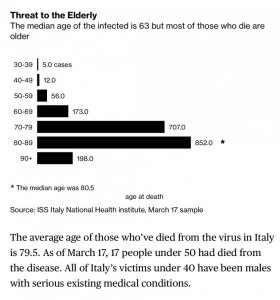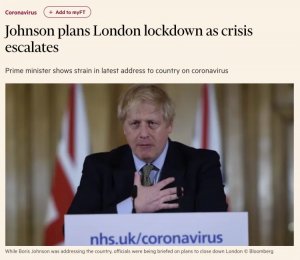Til de som har panikkspredning og helvete som hobby og dommedagsklokken hengende på stueveggen:
https://www.aljazeera.com/indepth/f...oronavirus-mental-health-200318064257416.html
Doctor's Note: Coronavirus and your mental health
A doctor explains the steps you can take to combat the uncertainty and anxiety surrounding the coronavirus pandemic.
Dr. Amir Khan
The world is a stressful place right now. The coronavirus pandemic has got people panic-buying, desperately scrolling social media platforms for the latest information and worrying about conspiracy theories. It is a lot to take in.
Around 264 million people around the world suffer from an anxiety disorder, with it being more common in women than in men. The World Health Organization (WHO) also lists obsessive-compulsive disorder (OCD) in its top 10 most disabling conditions as measured by lost income and decreased quality of life.
My clinics are filling up with patients whose mental health has been affected by this constant bombardment of information about coronavirus and worse, uncertainty.
They are understandably worried about some of the things they are hearing. Some of the rumours and bogus "advice" I have heard include drinking water every 15 minutes to avoid contracting the virus and the idea that taking a deep breath will help you decide if the virus has damaged your lungs.
To be absolutely clear - neither of these is true.
People who have had no prior history of mental health issues are suddenly having trouble sleeping, concentrating and getting on with their normal day-to-day lives. Those with a prior history of anxiety or OCD have found their symptoms have been exacerbated by the news of COVID-19.
Is the general public right to be anxious about the increasingly alarming news regarding the spread of COVID-19? The answer, as with many things, is yes, but in moderation.
Now, more than ever, we need to keep our mental health in as good a condition as possible.
One problem is the rate at which news about coronavirus is coming out and how quickly the information is changing.
But worse is the amount of "fake news" out there and how difficult it is to find reliable sources of information. It is human to feel the need to be on top of the latest guidance; nobody wants to risk contracting the disease.
The uncertainty and feeling of a lack of control are what underpins most people's anxiety. You are waiting for something to happen, and that in itself feeds further anxiety.
Another problem is that the new protocols around washing hands and not touching our faces, among other things, may well be making some people with OCD more unwell.
People with OCD often already exhibit repetitive cleaning behaviours, such as cleaning door handles, kitchens and bathrooms over and over. This may not sound too bad, but when it stops them from doing anything else, it becomes a significant problem in their lives.
If these people are now being told that they must wash their hands in a certain way every two hours, or clean surfaces regularly, it may cause their symptoms to spiral and they, too, then feel they have lost control.
So what steps can we take to reduce the chance of COVID-19 having a detrimental effect on our mental health?
Limit your news intake
We all want to be up to date, but you need downtime - especially from what is going on out there right now.
Limit the time you spend on social media and news outlets. This will give you some mental space for other things. But be strict with yourself; it will not be easy. Mute keywords on social media if you need to.
Do some exercise
Exercise has long been shown to have a beneficial effect on mental health, and it is no different now.
Even if you are confined to your home, you can still take a stroll around the garden, up and down your stairs or even do "chairobics" - exercises for less mobile people that can be done while sitting in a chair - to your favourite music.
Get some fresh air
Being outdoors has lots of health benefits, but increasingly it is being used to help manage anxiety and mood disorders.
If they are still accessible, woodlands and open parks are among the few places where chances of catching the coronavirus are low, so, if you can, find a time when it is likely to be less crowded and go for a walk. And try not to look at your phone.
Ration your worry time
If you find yourself falling into repetitive habits because you are fretting about coronavirus, limit the number of times you can wash your hands or clean surfaces. Limit your "worry time" over COVID-19 to a particular hour of each day and then try not to think about it for the rest of the day.
Above all, keep reminding yourself that most people who get COVID-19 will have only mild symptoms and will make a full recovery.







